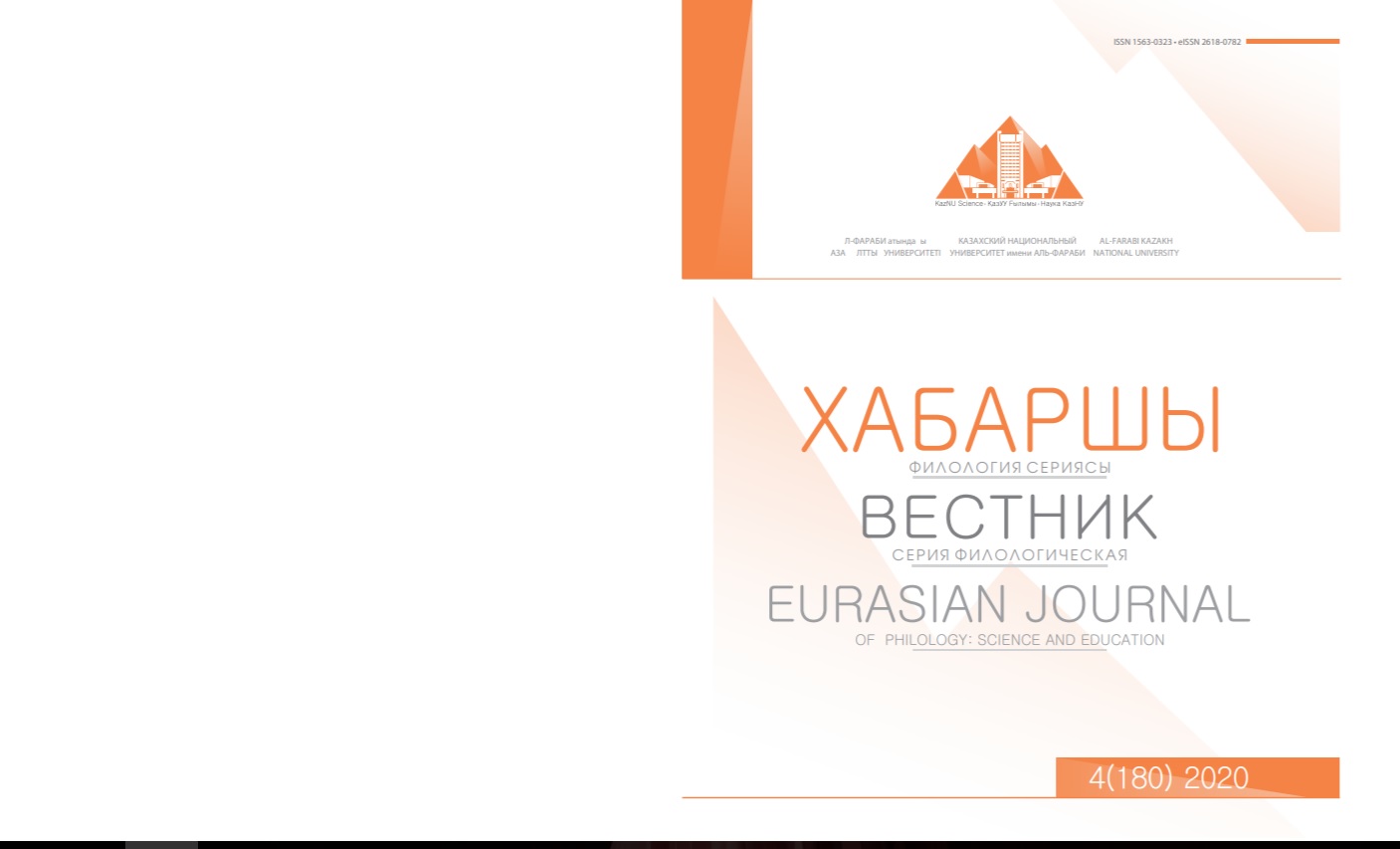Correlation of concepts “concept” and “world”
DOI:
https://doi.org/10.26577/EJPh.2020.v180.i4.ph13Abstract
The article discusses the problem of the personal formation of an individual’s worldview, and it presents a wide range of definitions of the idea’s “concept” and “world” in combination with the “concept of the world”. The need to consider long-familiar concepts is associated with their modern interpretation in various aspects of linguistic knowledge. In our time, the research interpretation of many concepts is acquiring a different level of linguistic communication. This is explained, on the one hand, by the persistent entry of media information into any field of science and the development dynamics of the content side of the concept. On the other hand, by the flow of foreign literature into the domestic industry in this or another specialty. Therefore, the work uses the experiences of foreign colleagues, including German linguists, interprets their points of view to deepen and actualize the cognitive side of the study. Representation of linguistic reality, the process of cognition, the image of a person’s consciousness are discussed based on lexical materials, semantic fields and/or ideas of “concept” and “world”. With the improvement of cognitive linguistics and its related disciplines, paradigm changes also occur, to clarify which we resort to the information of authoritative dictionaries, lexicons and other sources. Each language unit included in the article is directly related to the discussed issues, and it can be rechecked by any researcher or interested in this segment of the philological sphere. At the same time, the paper reflects on the problem of correlating the notions of conceptualization, categorization in our vision and the perception of foreign scientists.






